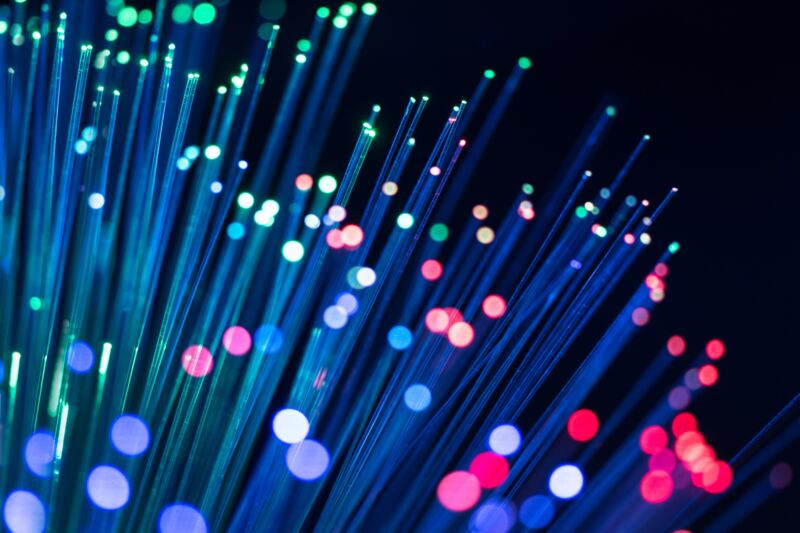
Proposals to pay for broadband networks by imposing new fees on Big Tech companies "are built on a false premise," Meta executives wrote in a blog post today.
"Network fee proposals do not recognize that our investments in content drive the business model of telecom operators," Meta executives Kevin Salvadori and Bruno Cendon Martin wrote. Meta's comments came a few weeks after Netflix co-CEO Greg Peters spoke out against the proposal being reviewed by European regulators.
Meta executives said telecom operators and content application providers (CAPs) "are symbiotic businesses, occupying different but complementary roles in the digital ecosystem. Every year, Meta invests tens of billions of euros in our apps and platforms—such as Facebook, Instagram, and Quest—to facilitate the hosting of content. Billions of people go online every day to access this content, creating the demand that allows telecom operators to charge people for Internet access. Our investment in content literally drives the revenue and business model of telecom operators."
Internet service providers in the EU argue that Big Tech companies should pay a "fair share" toward network-building costs. In the US, Federal Communications Commission Republican Brendan Carr claims that "Big Tech has been enjoying a free ride on our Internet infrastructure while skipping out on the billions of dollars in costs needed to maintain and build that network."
Big Tech companies don't actually get free access to the Internet, though. Anyone distributing content over the Internet pays their own providers, builds their own network infrastructure, or does some combination of the two.
For extremely large companies like Netflix and Meta, investments include building their own content delivery networks. "Over the last decade, CAPs have collectively invested over $880 billion in global digital infrastructure, including approximately $120 billion a year from 2018 to 2021," Meta's blog post today said. "These infrastructure contributions made by technology companies save telecom operators around $6 billion per year."
Telefónica wants “two-sided market”
The European Commission last month started taking public input on the proposal to make online platforms pay for telecom companies' broadband network upgrades and expansions. The exploratory consultation is scheduled to close on May 19.
Last week, Telefónica argued in a blog post that telecom should be a "two-sided market," with network operators charging Internet users and content providers.
"Telcos just want to tap new revenue sources; why would they need the policy maker for that, while other companies or markets do not need such intervention to evolve into a two- or multiple-sided market?" Telefónica Corporate Regulation Manager Fernando Herrera González wrote.
The Telefónica blog post lamented the existence of telecom-specific regulation that means new rules are needed for ISPs to extract payments from over-the-top (OTT) firms that send content to Internet users.
"As in other industries, the number of sides of the telco market should at each moment depend on the concrete business model under which the operators think they can be sustainable," the post said. "What is exceptional, on the contrary, is the existence of firms (in this case, the OTTs) able to reject negotiating the terms of services they are enjoying up to the point of refusing to pay for them."
Meta: No evidence of investment gap
Meta's blog post said that telecom operators seem to have enough money to build their networks. "We and others see no credible evidence of an investment gap in either fixed network capacity or mobile coverage," the post said.
Over 60 percent of Europeans have fiber Internet access at home and deployments "are well on their way to reach the EU Commission's goal of full coverage of homes with a gigabit network by 2030," Meta wrote.
"For European consumers, the priority is to ensure that the fixed networks which carry the vast majority of data have the technical capabilities to capitalize on the Internet of tomorrow—and the good news is that the industry's existing investment roadmap is already on track to enable home connection speeds tens of times higher than today's," Meta wrote. "Combined with expected improvements in latency through continued growth in edge data centers, Europe's network has more than enough potential to address demand for the metaverse and other Internet services for decades to come."
Meta also said 5G wireless coverage in Europe "has grown dramatically, with almost three-quarters of the population in EU27 countries now having access to 5G." While Meta hopes its plan for augmented-reality glasses will take off, it said 5G should be able to handle the traffic generated by the devices.
"We expect speeds for AR applications to be no more than low double digit megabits per second," which would not require "a major change in the physical architecture" of mobile networks, Meta said.
"network" - Google News
March 24, 2023 at 03:53AM
https://ift.tt/Ea7gGi0
Meta slams telco fee proposal, says ISPs should pay their own network costs - Ars Technica
"network" - Google News
https://ift.tt/lebKzsY
Shoes Man Tutorial
Pos News Update
Meme Update
Korean Entertainment News
Japan News Update

No comments:
Post a Comment